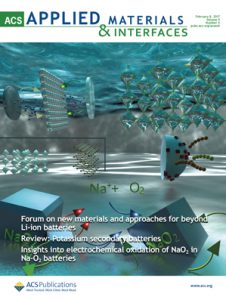 Researchers have retracted two 2016 papers from the same journal which were published without the permission of the supervising scientists.
Researchers have retracted two 2016 papers from the same journal which were published without the permission of the supervising scientists.
According to the retraction notices, the two Applied Materials & Interfaces articles were “published without the full knowledge or consent of the principal investigators” who guided the research, but are not named in the notices.
The papers share the same three authors, listed in the same order. Last author Fangqiong Tang and middle author Laifeng Li are principal investigators in different labs at the Chinese Academy of Sciences in Beijing. First author Nanjing Hao was formerly in Tang’s research group, but is now at Dartmouth College in New Hampshire.
Here’s the retraction notice for “Fabrication of Carbohydrate-Conjugated Fingerprintlike Mesoporous Silica Net for the Targeted Capture of Bacteria,” which was retracted only months after it was published in November 2016:
The authors retract the article “Fabrication of Carbohydrate-Conjugated Fingerprintlike Mesoporous Silica Net for the Targeted Capture of Bacteria” (ACS Appl. Mater. Interfaces 2016, 8, 30683−30686, DOI: 10.1021/acsami.6b10989) due to concerns with breach of the ACS Ethical Guidelines to Publication of Chemical Research. The article was submitted and published without the full knowledge or consent of the principal investigators under whose guidance the research was conducted.
Here’s the other retraction notice, with almost identical wording to the first, for “BSA Protein-Mediated Synthesis of Hollow Mesoporous Silica Nanotubes, and Their Carbohydrate Conjugates for Targeting Cancer Cells and Detecting Mycobacteria” published in October 2016 and also retracted in February:
The authors retract the article “BSA Protein-Mediated Synthesis of Hollow Mesoporous Silica Nanotubes, and Their Carbohydrate Conjugates for Targeting Cancer Cells and Detecting Mycobacteria” (ACS Appl. Mater. Interfaces, 2016, 8, 29208−29212, DOI: 10.1021/acsami.6b10051) due to concerns with breach of the ACS Ethical Guidelines to Publication of Chemical Research. The article was submitted and published without the full knowledge or consent of the principal investigators under whose guidance the research was conducted.
We reached out to all three authors to find out more information. First author Nanjing Hao responded, but opted not to go into detail, citing a private issue regarding “somebody’s personality:”
This retraction is because of conflict of interest, not fake results or fake reviews. Both studies were published with critical peer-review process. Regarding the retraction reasons, it is really a little bit complicated (involving somebody’s personality), and i do not think that it is right to make it public.
The retraction notices do not specify whether the principal investigators are Hao’s two coauthors or someone else. John X.J. Zhang, the principal investigator in Hao’s new lab at Dartmouth College, told us that the retracted papers were unrelated to his current work:
The papers you referred to were related to Dr. Hao’s previous research before coming to Dartmouth. So I am not involved in the work.
We’ve also contacted the journal’s editor-in-chief Kirk S. Schanze, chair in chemistry at the University of Texas, San Antonio. Given Schanze’s travel schedule, he connected us with Glenn Ruskin, director of external affairs and communications at the American Chemical Society, which publishes the journal. Ruskin said:
Because of the sensitivities attendant to matters such as this, there is little to be added beyond the retraction statements.
Hat Tip: Rolf Degen
Like Retraction Watch? Consider making a tax-deductible contribution to support our growth. You can also follow us on Twitter, like us on Facebook, add us to your RSS reader, sign up on our homepage for an email every time there’s a new post, or subscribe to our daily digest. Click here to review our Comments Policy. For a sneak peek at what we’re working on, click here.